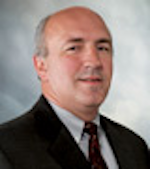Wiferion's industrial wireless charging business acquired by Puls after Tesla deal
After being acquired by automotive manufacturer Tesla during the summer for a reported $76 million, Wiferion and its industrial wireless charging business have been sold to Puls, which specializes in power supplies for industrial applications..
Known for its wireless energy technology, which is used to power mobile robots and autonomous industrial vehicles through wireless charging, Wiferion will become a new business unit, Puls Wireless, in Freiburg, Germany.
“Tesla acquiring Wiferion’s wireless charging solution is a huge vote of confidence for organizations using robotic solutions, especially mobile ones, that they too can reap the benefits from this mode of power delivery," Dr. Mor Peretz, CEO and co-founder of CaPow, the perpetual power delivery platform for robotic fleets, said in July. He believed Wiferion was the perfect fit for Tesla’s needs and would be instrumental for ramping up production of their electric vehicles.
"Tesla, however, is just one use case for robots, and there are endless others, many of which have different energy delivery requirements, most notably mobile robots that are always in-motion," Peretz continued. "Like any electric device that lives on the go, mobile robots depend on their batteries and their charging stations. While static wireless charging is revolutionary for the market, for warehouse robots it still means downtime. The solution is still wireless power delivery but one that is dynamic and occurring while mobile robots are in-motion which will increase operational capacity. This creates a flexible, powerful solution for the most difficult, yet valuable, use cases and that’s the challenge I'm taking on to achieve the robot future many envision.”
Wiferion’s platform now will be enhanced with the capabilities of Puls, which is based in Munich and Chicago. The addition of Wiferion’s technology to the Puls portfolio could provide customers in the manufacturing and intralogistics industries with fleet efficiency.
“For both companies, efficiency and reliability are key,” said Matthieu Ebert, former vice president of Wiferion’s North American subsidiary, who will now serve as director of product and technology of the Puls Wireless business unit. Ebert explained the benefits of wireless-contact charging in this article about cleanroom environments.
“Since Puls already has a strong presence in intralogistics, Wiferion’s wireless charging solution is the ideal addition to the existing product portfolio to address a similar customer base,” continued Ebert. “There is an innate compatibility between Wiferion and Puls that will ensure success for future applications and our existing customers.”
Wiferion has developed inductive charging to maximize the performance of industrial electric vehicles, such as autonomous guided vehicles, autonomous mobile robots and forklifts, said Bernhard Erdl, managing director and owner of Puls. “With the additional capabilities of Puls, we want to make this system the global market standard and will invest significantly.”
Inductive wireless charging is moving toward a standard power platform, and Wiferion has gained nearly 30 new U.S. customers this year. Wiferion has already sold charging systems in more than 20 countries. The system has been designed into more than 100 different industrial EV and mobile robots, with thousands of units sold globally, including installation in several European and U.S. automotive manufacturing facilities. Puls employs more than 100 developers and has global production and sales locations.





